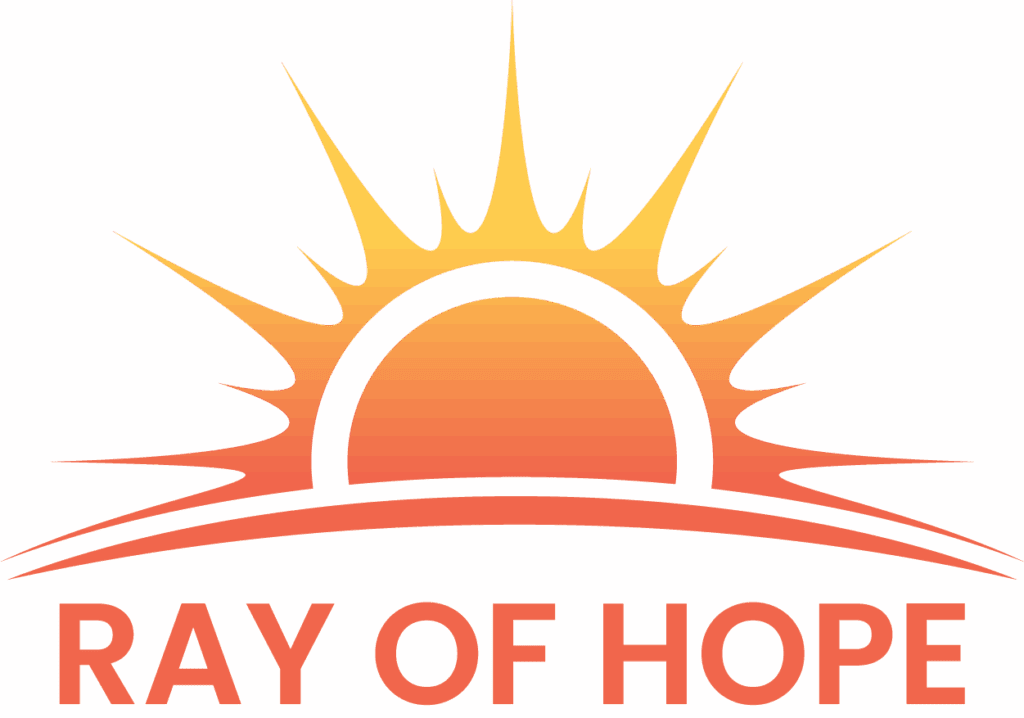If you’re struggling with both substance use and mental health challenges, you’re not alone. Researchers have found 50% of people who experience a substance use disorder during their lives will also have a mental health disorder and vice versa. In 2020, 17 million U.S. adults experienced co-morbid mental health and substance use disorders. This complex condition, known as dual diagnosis or co-occurring disorders, requires specialized understanding and treatment approaches.
What Is Dual Diagnosis?
Dual diagnosis means you have both a mental health disorder and a substance use disorder at the same time. This co-occurrence is more common than many realize, and it presents unique challenges in diagnosis and treatment. The term “dual diagnosis” might also be referred to as co-occurring disorders or comorbidity in clinical settings.
When you have a dual diagnosis, you’re dealing with two interconnected conditions that can significantly impact each other. When these conditions occur together, the effects of each can be worse. Untreated mental health issues can cause substance use problems to worsen and increase. And when substance use increases, your mental health problems may increase, too. This creates a vicious cycle.
The relationship between mental health disorders and substance abuse is complex and varies from person to person. Common mental health conditions that frequently co-occur with addiction include:
- Depression and mood disorders
- Anxiety disorders
- Bipolar disorder
- Post-traumatic stress disorder (PTSD)
- Attention-deficit/hyperactivity disorder (ADHD)
- Borderline personality disorder
- Schizophrenia
The Complex Relationship: Which Comes First?
One of the most challenging aspects of dual diagnosis is determining which condition developed first. Although these problems often occur together, this does not mean that one caused the other, even if one appeared first. In fact, it can be hard to figure out which came first.
Researchers think that there are three possible reasons as to why they often occur together: Common risk factors can contribute to both mental disorders and SUDs. Additionally:
Self-Medication Theory: Some research points to the idea that those with an underlying mental health condition, such as depression or anxiety, will turn to substances as a way to deal with their unpleasant symptoms. If you have a mental health disorder, you may self-medicate. This means you use alcohol or drugs to try to feel better or cope. Although these substances may temporarily help symptoms, they can make them worse over time.
Brain Chemistry Changes: Alcohol, drugs and other substances can trigger changes to your brain’s structure and function. This can make it more likely you’ll develop a mental health disorder. Mental health disorders may also change the way the “reward” centers of your brain work. This can make it more likely you’ll become addicted.
Shared Risk Factors: Genetics, trauma, stress, and environmental factors can increase vulnerability to both mental health disorders and substance use disorders simultaneously.
Recognizing the Signs and Symptoms
Understanding the warning signs of dual diagnosis is crucial for early intervention and treatment. Addiction and mental health conditions can manifest in many different ways. It’s not always obvious when someone is struggling; in many cases, the warning signs can be subtle or easily overlooked.
Substance Use Disorder Signs
Some common signs of a potential substance use disorder include: Using substances in larger amounts or for more extended periods than intended. Wanting to cut down or stop, but feeling unable to. Experiencing negative effects on daily responsibilities, education, work, or relationships.
Additional warning signs include:
- Developing tolerance (needing more of the substance to achieve the same effect)
- Experiencing withdrawal symptoms when not using
- Continuing to use despite knowing it causes problems
- Neglecting responsibilities at work, school, or home
- Taking risks while under the influence
- Isolating from family and friends
Mental Health Disorder Signs
Mental health symptoms vary depending on the specific condition but may include:
- Persistent feelings of sadness, hopelessness, or emptiness
- Excessive worry, fear, or anxiety
- Extreme mood swings or emotional instability
- Difficulty concentrating or making decisions
- Changes in sleep patterns or appetite
- Thoughts of self-harm or suicide
- Withdrawal from social activities
- Unexplained physical complaints
Your substance addiction and your mental health issue each have their own symptoms. So the symptoms of dual diagnosis will depend on which substances and mental health disorders are involved.
The Challenges of Diagnosis
The overlap in symptoms between addiction and other mental health problems can make an accurate diagnosis tricky. It can be difficult for your healthcare provider to make an accurate diagnosis because the symptoms of both disorders can overlap.
For example, depression can look like the effects of alcohol withdrawal, and anxiety might be mistaken for the side effects of stimulant use. This is why working with healthcare professionals experienced in dual diagnosis is essential.
Denial is common in both substance abuse and mental health issues. It’s often hard to admit how dependent you are on alcohol or drugs or how much they affect your life. Similarly, the symptoms of conditions such as depression, anxiety, bipolar disorder, or PTSD can be frightening, so you may try to ignore them and hope they go away.
Why Integrated Treatment Is Essential
The best treatment for co-occurring disorders is an integrated approach, where both the substance abuse problem and the mental disorder are treated simultaneously. The best way to treat a dual diagnosis is with an integrated addiction treatment plan that addresses both disorders as interconnected issues.
Without simultaneous treatment, patients risk entering a cycle where untreated mental health symptoms perpetuate substance use, and vice versa, making recovery nearly impossible without addressing both conditions holistically.
Why Sequential Treatment Doesn’t Work
Traditional approaches that treat one condition at a time often fail because:
- Untreated mental health symptoms can trigger relapse
- Ongoing substance use interferes with mental health treatment
- The underlying connections between conditions remain unaddressed
- Patients may receive conflicting advice from different treatment teams
Benefits of Integrated Care
Studies have shown that integrated care improves symptoms, enhances access to services, improves quality of care, and reduces healthcare costs. Integrated treatment provides:
- Coordinated care from a unified treatment team
- Consistent treatment philosophy and goals
- Better understanding of how conditions interact
- More effective medication management
- Improved treatment compliance and outcomes
Treatment Approaches and Levels of Care
Dual diagnosis treatment involves multiple therapeutic modalities tailored to individual needs. Treatment often includes therapy, medication, peer support, and lifestyle changes tailored to individual needs.
Therapy Options
Cognitive Behavioral Therapy (CBT): Cognitive behavioral therapy (CBT) is an approach that focuses on changing certain thought patterns that lead to destructive behaviors. CBT helps identify and modify negative thinking patterns that contribute to both substance use and mental health symptoms.
Dialectical Behavior Therapy (DBT): Dialectical behavioral therapy (DBT) will help you learn coping skills to handle intense emotions, which may help change behaviors and improve relationships. DBT is particularly effective for individuals with emotional regulation difficulties.
Group Therapy: Group therapy is a very effective intervention that allows you to share with others on a similar journey to recovery and healing. Group settings provide peer support and normalize the recovery experience.
Contingency Management: Contingency management (CM) is a type of therapy that encourages healthy changes by offering vouchers or rewards for desired behaviors.
Medication Management
Many mental health symptoms can be alleviated with treatment medications. Some addictions, such as alcohol, opioids, and nicotine, can also be treated with medication to help alleviate withdrawal symptoms and cravings. Proper medication management in dual diagnosis requires careful coordination to avoid interactions and ensure both conditions are appropriately addressed.
Levels of Care
Treatment intensity can vary based on your specific needs and circumstances:
Partial Hospitalization Programs (PHP): Generally, a Partial Hospitalization Program (PHP) is a structured, intensive mental health care program for those with severe mental health or substance use disorders. PHPs provide intensive daily treatment while allowing you to return home each evening. At Ray of Hope’s Partial Hospitalization Program, clients receive comprehensive care including daily group therapy, stress management groups, and individual sessions designed to support recovery goals with a focus on relapse prevention.
Intensive Outpatient Programs (IOP): Dual diagnosis IOP (Intensive Outpatient Program) treatment is a comprehensive level of care designed to support individuals who are facing both substance use disorders and co-occurring mental health disorders. This program offers a higher level of support than weekly therapy, but includes fewer treatment hours per week than PHP. Ray of Hope’s Intensive Outpatient Program provides the same high-quality care as residential programs but with greater flexibility for those with personal and professional responsibilities.
Traditional Outpatient Treatment: Weekly therapy sessions and medication management for those who need ongoing support but can function independently.
Recovery Strategies and Coping Skills
As well as continuing mental health treatment, your sustained recovery depends on learning healthier coping strategies and making better decisions when dealing with life’s challenges.
Stress Management
Drug and alcohol abuse often stems from misguided attempts to manage stress. Stress is an inevitable part of life, so it’s important to have healthy coping skills so you can deal with stress without turning to alcohol or drugs. Effective stress management techniques include:
- Deep breathing exercises
- Progressive muscle relaxation
- Mindfulness meditation
- Regular exercise
- Time management skills
- Healthy sleep hygiene
Emotional Regulation
Many people turn to alcohol or drugs to cover up painful memories and emotions such as loneliness, depression, or anxiety. You may feel like doing drugs is the only way to handle unpleasant feelings, but HelpGuide’s free Emotional Intelligence Toolkit can teach you how to cope with difficult emotions without falling back on your addiction.
Learning to identify, understand, and manage emotions without substances is a crucial skill in dual diagnosis recovery. This includes:
- Recognizing emotional triggers
- Developing distress tolerance
- Building healthy coping mechanisms
- Creating strong support networks
The Role of Family and Support Systems
Family involvement can significantly impact treatment success. A leading predictor of success in IOP is family involvement. Support systems provide:
- Emotional encouragement during difficult times
- Accountability for treatment goals
- Assistance with practical needs
- Understanding of the recovery process
Family therapy and education help loved ones understand dual diagnosis and learn how to provide appropriate support without enabling unhealthy behaviors.
Hope for Recovery
With early intervention, a strong support system, and access to appropriate clinical care, recovery is possible and realistic. Individuals can regain control, improve well-being, and achieve a sustainable, healthier future.
Recovery from dual diagnosis is not only possible but increasingly successful with proper treatment. But substance abuse and mental health issues can happen to any of us. And admitting you have a problem and seeking help is the first step on the road to recovery.
Taking the First Step
If you recognize signs of dual diagnosis in yourself or a loved one, professional assessment is crucial. However, your provider will use wide-ranging screening tools to evaluate you for both disorders. It’s important to be honest when speaking with your healthcare provider.
At Ray of Hope Behavioral Health, we understand the complexity of dual diagnosis and provide comprehensive co-occurring treatment programs that address both addiction and mental health concerns simultaneously. Our evidence-based approach includes individualized assessments and interventions designed to help you achieve balance, stability, and long-term well-being.
What to Expect During Assessment
A comprehensive dual diagnosis assessment typically includes:
- Detailed medical and psychiatric history
- Substance use history and patterns
- Mental health symptom evaluation
- Physical health assessment
- Social and family history
- Risk assessment for safety concerns
Questions to Ask Treatment Providers
When deciding on a rehab center, choose one that specializes in your or your loved one’s type of addiction and co-occurring disorder. Important questions include:
- Do you offer individualized treatment plans for dual diagnosis?
- Will I be evaluated by a licensed psychiatric professional before admission?
- Are both disorders viewed as interconnected health issues?
- What evidence-based treatments do you use?
- Do you offer aftercare and continuing support services?
Moving Forward with Confidence
Dual diagnosis can feel overwhelming, but with proper understanding and treatment, recovery is achievable. The journey requires patience, commitment, and professional support, but thousands of individuals successfully manage both conditions and lead fulfilling lives.
Remember that seeking help is a sign of strength, not weakness. Each person’s recovery journey is unique, and finding the right combination of treatments and support systems is key to long-term success.
If you’re ready to take the next step toward recovery, contact Ray of Hope today to learn more about our comprehensive dual diagnosis treatment programs. Our caring and compassionate team is here to help you find your path to healing and hope.




